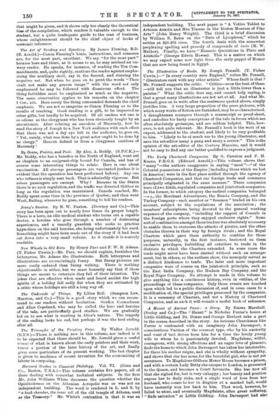The Art of Reading and Speaking. By James Fleming, B.D.
(E. Arnold.)—Canon Fleming's hints, instructions, and censures are, for the most part, excellent. We say "for the most part" because here and there, as it seems to us, he may mislead an un- wary reader. He speaks, for instance, of reading the Ten Com- mandments, and, quite rightly, cautions the reader against empha- sising the auxiliary shalt, say in the Second, and slurring the negative net. But when he goes on to print the words "Thou shalt not make any graven image" with the word not only emphasised he may be followed with disastrous effect. The thing forbidden must be emphasised as much as the negative. The same observation applies to his remarks on the chapter 1 Cor., xiii. Here surely the thing commended demands the chief emphasis. We are not so sanguine as Canon Fleming as to the results of teaching. Good reading is a gift, to be improved as other gifts, but hardly to be acquired. Of all readers not one is so odious as the clergyman who has been obviously taught by an elocutionist. After relating an anecdote of Macready, how he read the story of Joseph to a New York audience with such effect that there was not a dry eye left in the audience, he goes on, "Yet, surely, what was done by a great actor ought to be done by us clergy." Heaven defend us from a clergyman emulous of Macready !


















































 Previous page
Previous page